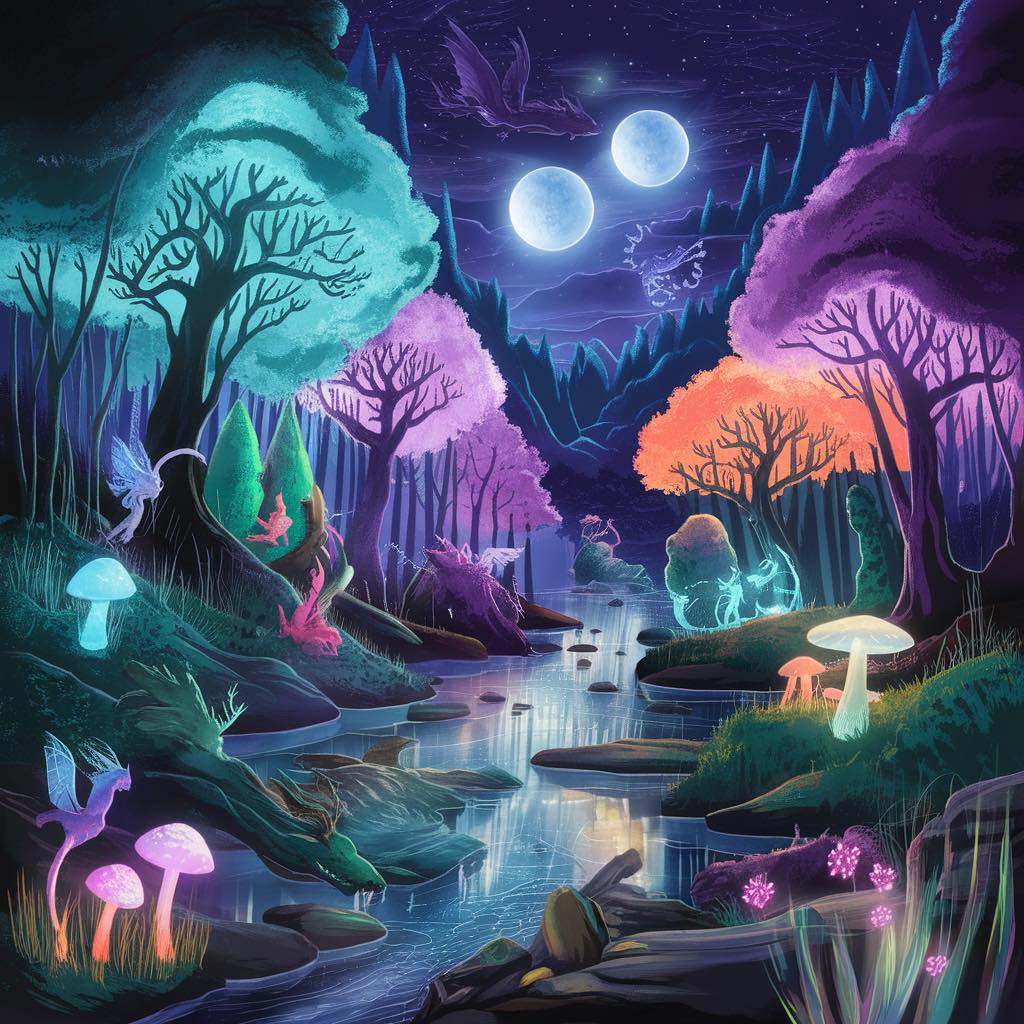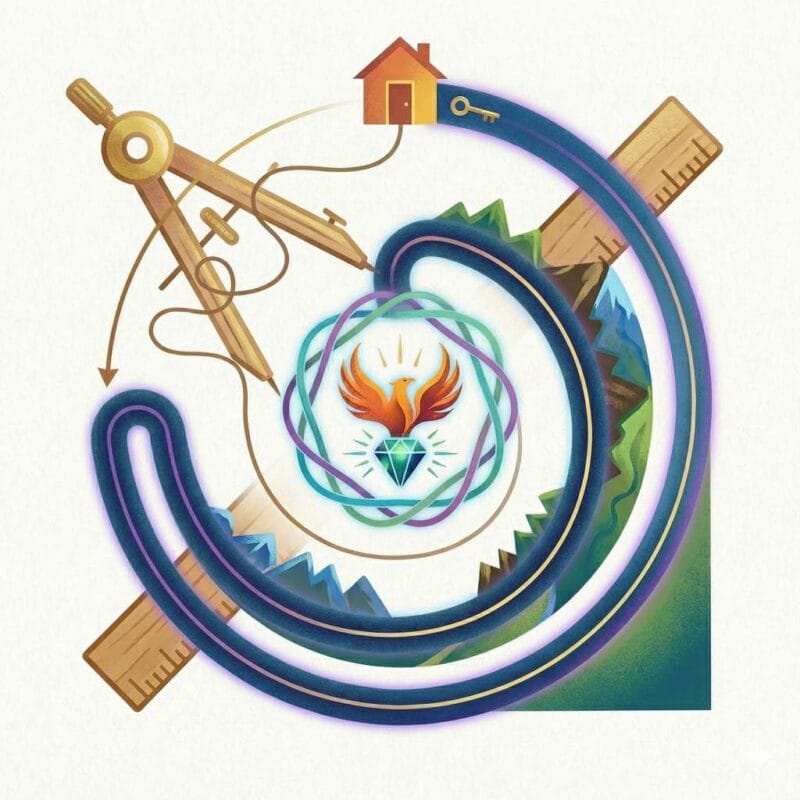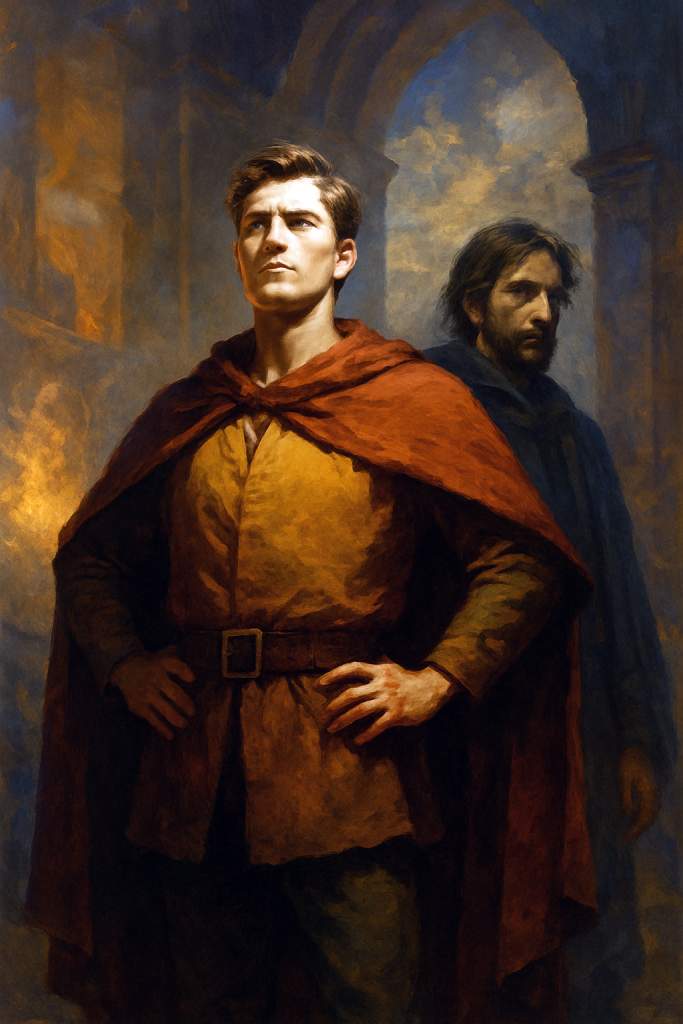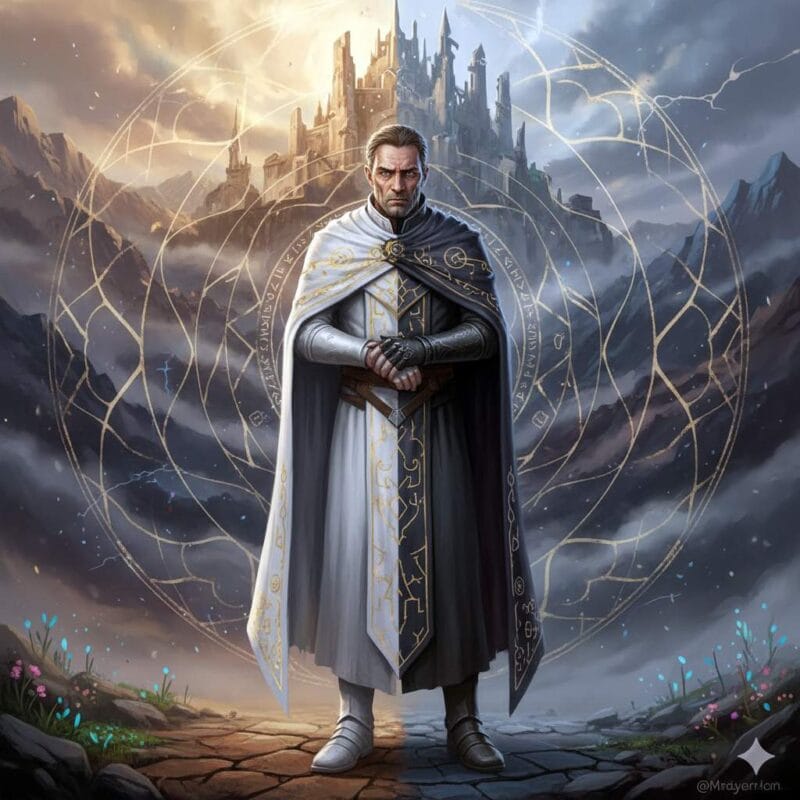Fantastic fiction breaks free from the limits of the real world and blends the extraordinary with the everyday. Rather than anchoring itself in natural laws, it provokes the imagination to move beyond the familiar. This genre explores ideas and settings that challenge assumptions, using magical, mythical, or otherworldly elements to craft a singular kind of story.
The genre spans a wide range of works, from stories rooted in folklore and myth to those that build entirely new worlds with their own internal logic. It combines the familiar with the improbable and opens space for invention, which inspires imagination in both writers and readers.
Types of Fantastic Fiction
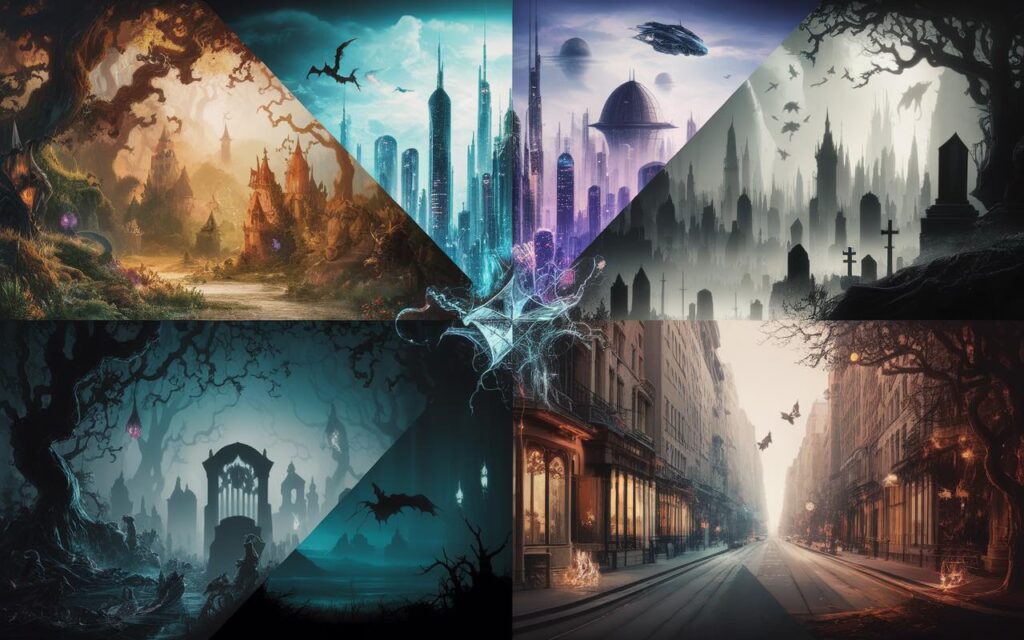
Fantastic fiction spans a variety of subgenres, each with its own unique features and thematic focus. High fantasy, epitomized by J. R. R. Tolkien’s The Lord of the Rings series, which started in The Fellowship of the Rings (1954), is characterized by its expansive worlds and epic narratives involving quests, heroism, and the battle between good and evil. These stories often take place in fully realized imaginary universes with detailed histories and cultures.
Urban fantasy, on the other hand, situates magical or supernatural elements within a contemporary urban environment. A notable example is Neil Gaiman’s Neverwhere (1996), which uncovers a hidden world beneath the streets of London. This subgenre juxtaposes the mundane with the magical, creating a dynamic interplay between the two realms.
Magical realism blends the extraordinary seamlessly into everyday life, as seen in Gabriel García Márquez’s One Hundred Years of Solitude (1967). Unlike high fantasy or urban fantasy, magical realism treats its fantastical elements as a natural part of the world, often serving to illuminate deeper truths about human existence.
Science fantasy merges the imaginative scope of both science fiction and fantasy. It places magical or mythical elements within futuristic or technological settings. Anne McCaffrey’s Dragonriders of Pern series, which begins with Dragonflight (1968), stands as a clear example of this blend. It brings together dragons and space exploration within a story that connects the conventions of both science fiction and fantasy.
Horror-infused fantastic fiction, such as H.P. Lovecraft’s The Call of Cthulhu (1928), uses supernatural or otherworldly elements to evoke fear and unease. These stories confront the more disturbing recesses of the imagination and focus on themes rooted in mystery, dread, and the unknowable.
Is fantastic fiction the same as fantasy fiction?
While the terms “fantastic fiction” and “fantasy fiction” might seem interchangeable, there are subtle distinctions between them. Fantasy fiction typically refers to a specific genre with established tropes and conventions, such as:
- Magic: A core element of the narrative, often with defined rules and systems.
- Mythical creatures: Dragons, elves, dwarves, and other fantastical beings are commonly found in fantasy fiction.
- Medieval-inspired settings: Many fantasy stories take place in worlds reminiscent of medieval Europe, though this is not always the case.
Fantastic fiction is a broader term encompassing any fiction that incorporates fantastical elements, including:
- Fantasy: As mentioned above, traditional fantasy falls under this umbrella.
- Science fiction: Stories that explore futuristic technology, space travel, and alternative realities.
- Magical realism: A genre where magical elements are interwoven with otherwise realistic settings and narratives.
- Superhero stories: Tales of extraordinary individuals with superhuman abilities.
- Gothic fiction: Dark and atmospheric stories often featuring supernatural elements and psychological exploration.
Essentially, fantasy fiction is a type of fantastic fiction, but not all fantastic fiction is fantasy. Think of it this way: “fantastic fiction” is the overarching category, while “fantasy fiction” is a specific subgenre within that category.
Fantastic Fiction Authors
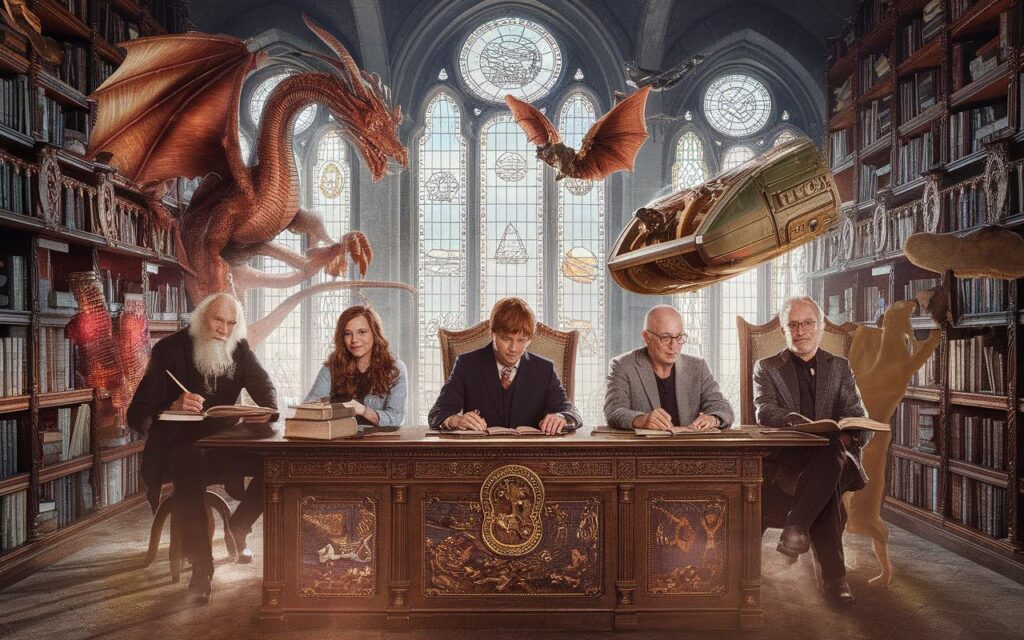
The genre’s richness stems from the distinct visions of its foundational authors. Among them is J.R.R. Tolkien, whose The Lord of the Rings series established a benchmark for high fantasy with its intricate mythology and worldbuilding. Tolkien’s ability to craft a detailed and immersive universe inspired generations of writers.
Another towering figure in fantastic fiction is Ursula K. Le Guin. Her Earthsea series, beginning with A Wizard of Earthsea (1968), combines magic with philosophical depth and examines themes such as power, identity, and the tension between opposing forces in the natural world. Le Guin’s thoughtful treatment of story and character places her among the most influential writers in the genre.
In contemporary fantastic fiction, Gaiman stands out for his ability to connect myth with modern life. His novel American Gods (2001) places ancient deities in a present-day world and brings together the mystical and the everyday to form a rich and layered story. Gaiman often moves between the strange and the recognizable, which gives his work a broad and lasting appeal.
Equally noteworthy is Haruki Murakami, whose novels, such as Kafka on the Shore (2002), blend surrealism with elements of magical realism. His stories often examine metaphysical questions through dreamlike environments and mysterious characters. This synthesis carves a unique space for his work within the broader terrain of fantastic fiction.
Fantastic Fiction Books
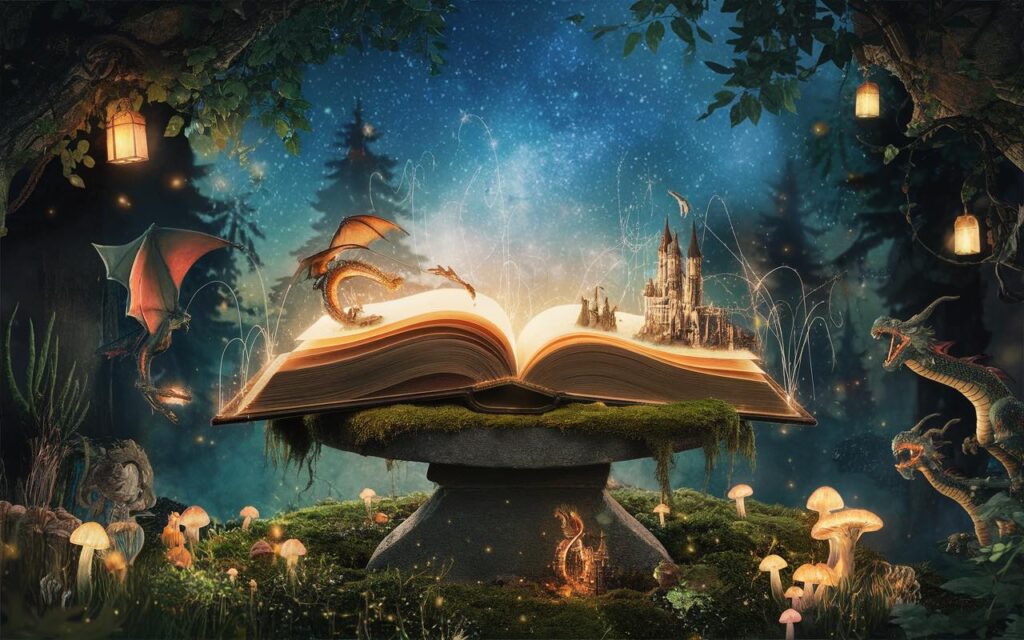
Several books have become landmarks within fantastic fiction, each offering a unique contribution to the genre. García Márquez’s One Hundred Years of Solitude is often cited as a foundational text in magical realism, a subgenre of fantastic fiction. The novel’s blending of the mythical with the historical creates a compelling narrative that transcends traditional storytelling forms.
Another cornerstone of the genre is Philip Pullman’s His Dark Materials trilogy, starting with The Golden Compass (1995). Pullman’s work is notable for its exploration of philosophical and ethical questions through the lens of an alternate universe, enriched by complex characters and intricate plotting.
Margaret Atwood’s The Handmaid’s Tale (1985) also occupies a significant place in fantastic fiction. Though the novel uses dystopia as its primary lens, its speculative dimension sharpens its critique of social structures and presents a world that appears disturbingly plausible despite its departures from current reality.
Additionally, works like Italo Calvino’s Invisible Cities (1972) demonstrate the versatility of fantastic fiction. Calvino’s book, structured as a series of dialogues between Marco Polo and Kublai Khan, uses imaginative descriptions of fictional cities to explore themes of memory, desire, and human creativity. The abstract and poetic nature of Calvino’s prose highlights the genre’s ability to transcend conventional narrative forms.
In young adult fiction, J. K. Rowling’s Harry Potter series, beginning with Harry Potter and the Sorcerer’s Stone (1997), has introduced millions to the genre. By combining a richly imagined magical world with universal themes of friendship, loyalty, and courage, Rowling’s work has had a lasting impact on readers worldwide.
Fantastic fiction stands as a testament to the boundless creativity of the human imagination. Through its diverse array of authors and works, the genre has continuously provoked readers to explore the possibilities beyond the constraints of reality. Whether through the intricate worlds of Tolkien and Le Guin, the mythic resonance of Gaiman, or the surreal landscapes of Murakami, fantastic fiction continues to inspire and challenge conventional notions of storytelling.
Further Reading
On the Edge: Fantastic Fiction by Jordan E. Rosenfeld, Writer’s Digest
Fantastic Modes; Or, Is Magical Realism Just Urban Fantasy? by Lincoln Michel, Substack
Is the Fantastic Really Fantastic?: Genre, Ideology, and Popular Culture by Irina Golovacheva, ResearchGate
